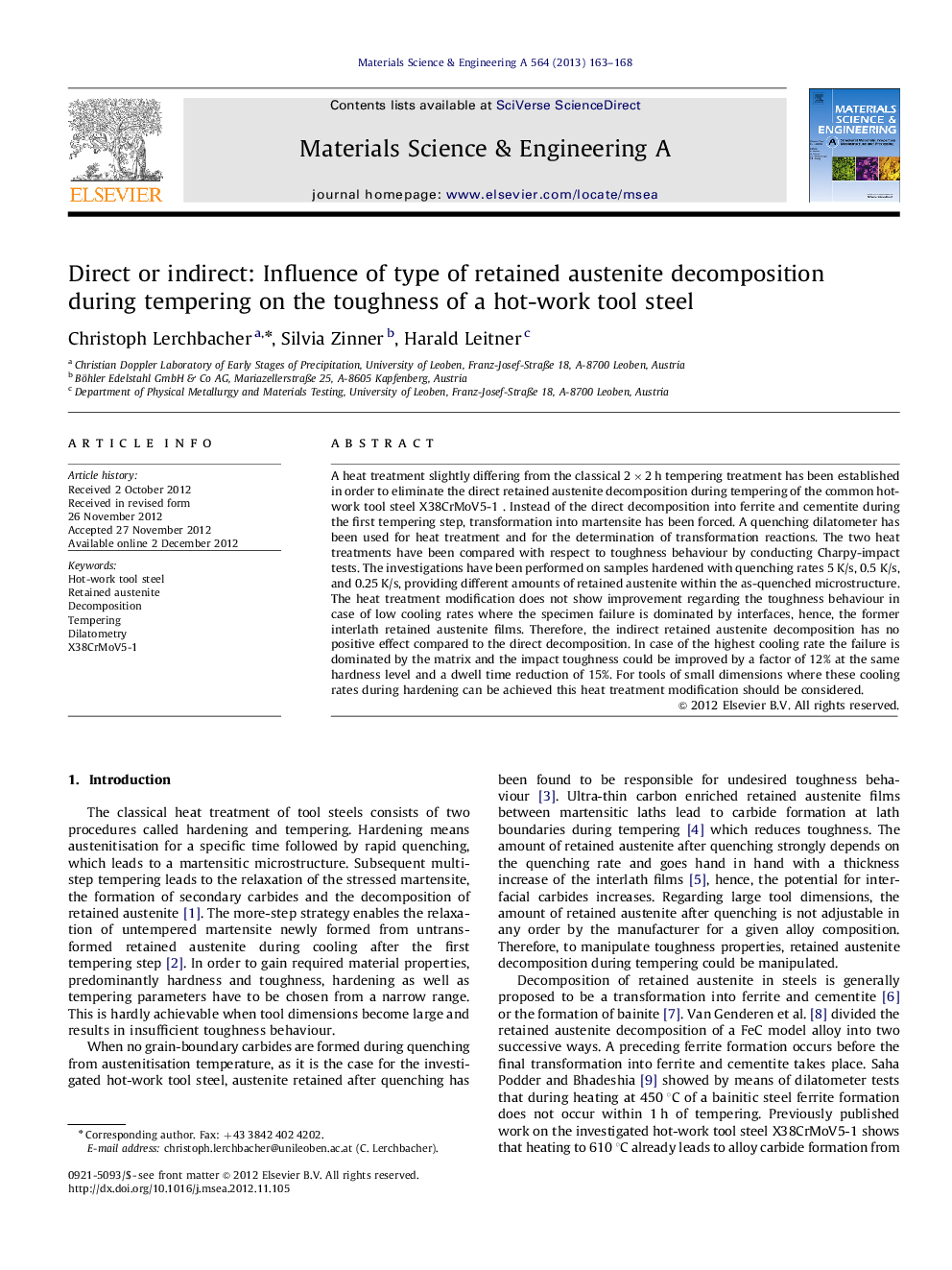| کد مقاله | کد نشریه | سال انتشار | مقاله انگلیسی | نسخه تمام متن |
|---|---|---|---|---|
| 7983274 | 1514779 | 2013 | 6 صفحه PDF | دانلود رایگان |
عنوان انگلیسی مقاله ISI
Direct or indirect: Influence of type of retained austenite decomposition during tempering on the toughness of a hot-work tool steel
ترجمه فارسی عنوان
مستقیم یا غیرمستقیم: تأثیر نوع تجزیه آستنیت حفظ شده در زمان خیس شدن بر سختی یک فولاد ابزار گرم
دانلود مقاله + سفارش ترجمه
دانلود مقاله ISI انگلیسی
رایگان برای ایرانیان
کلمات کلیدی
موضوعات مرتبط
مهندسی و علوم پایه
مهندسی مواد
دانش مواد (عمومی)
چکیده انگلیسی
A heat treatment slightly differing from the classical 2Ã2Â h tempering treatment has been established in order to eliminate the direct retained austenite decomposition during tempering of the common hot-work tool steel X38CrMoV5-1. Instead of the direct decomposition into ferrite and cementite during the first tempering step, transformation into martensite has been forced. A quenching dilatometer has been used for heat treatment and for the determination of transformation reactions. The two heat treatments have been compared with respect to toughness behaviour by conducting Charpy-impact tests. The investigations have been performed on samples hardened with quenching rates 5Â K/s, 0.5Â K/s, and 0.25Â K/s, providing different amounts of retained austenite within the as-quenched microstructure. The heat treatment modification does not show improvement regarding the toughness behaviour in case of low cooling rates where the specimen failure is dominated by interfaces, hence, the former interlath retained austenite films. Therefore, the indirect retained austenite decomposition has no positive effect compared to the direct decomposition. In case of the highest cooling rate the failure is dominated by the matrix and the impact toughness could be improved by a factor of 12% at the same hardness level and a dwell time reduction of 15%. For tools of small dimensions where these cooling rates during hardening can be achieved this heat treatment modification should be considered.
ناشر
Database: Elsevier - ScienceDirect (ساینس دایرکت)
Journal: Materials Science and Engineering: A - Volume 564, 1 March 2013, Pages 163-168
Journal: Materials Science and Engineering: A - Volume 564, 1 March 2013, Pages 163-168
نویسندگان
Christoph Lerchbacher, Silvia Zinner, Harald Leitner,
